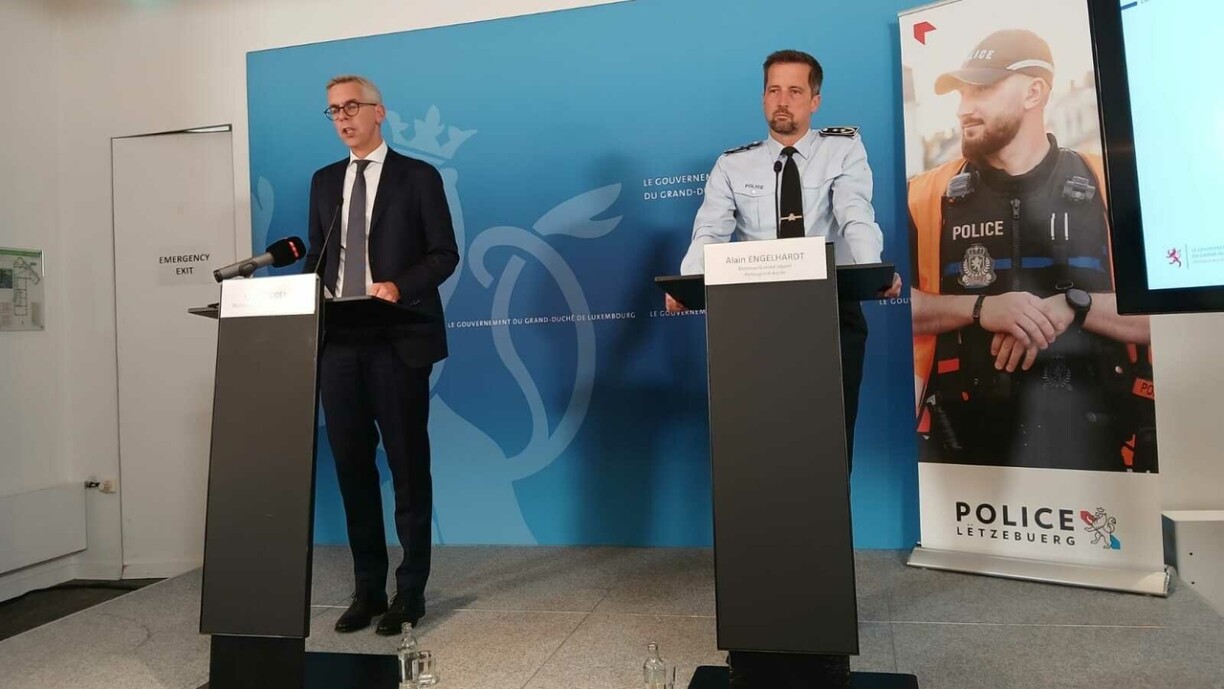
A new system to automatically recognise vehicle license plates will soon be installed on Luxembourg’s roads. On Wednesday, Home Affairs Minister Léon Gloden presented the related draft law to the parliamentary committee and later to the press.
While no party questioned the principle of the system, parts of the opposition argued that certain provisions go too far.
The Automatic Number-Plate Recognition system (ANPR) uses intelligent cameras, which will first be set up on motorways near the borders. These cameras record license plates and cross-check them with national and international databases.
If, for example, a vehicle has been reported stolen, the system triggers a so-called ‘hit’.
But the cameras capture more than just plates: they also record the entire vehicle, the driver, and any passengers. Officially, the main goal of ANPR is to fight serious and organised crime as well as terrorism. It can also help locate missing persons or individuals wanted under arrest warrants.
In addition, the system may be deployed for up to 12 hours before and during large-scale events, such as football matches, to identify hooligans.
The system was requested by the police, a demand Gloden said was justified: “The aim is clearly to improve the speed and efficiency of police work. As I’ve said many times, data is the gold of the 21st century. Criminals must not stay a step ahead of us. We have to stay a step ahead of them.”
All collected data will be stored for 28 days before being deleted.
For Pirate Party MP Marc Goergen, that raises serious concerns: “I can understand storing data when there’s a hit. But here it applies to everyone. You’re photographing drivers and passengers who’ve done nothing wrong and keeping that data for 28 days, which effectively creates movement profiles.
“And if the system expands beyond border motorways, it could track people across the whole country. Why should innocent passengers – even children – end up in a police database just for driving on a Luxembourg road?”

Deputy Police Director Alain Engelhardt emphasised that the ANPR system will normally only collect data, not process it. Processing would only be possible in the context of an investigation, in which case the data could also be stored for longer than 28 days.
As Pirate Party MP Marc Goergen pointed out, the system is set to be extended in a second phase to certain national roads.
For Green MP Meris Sehovic, this raises further concerns about privacy: “In Esch, for example, the N31 runs straight through the city, with houses on both sides. The Visopols law explicitly forbids cameras from capturing private spaces. I don’t see any such safeguard in this draft law. Does this mean there’s no guarantee that this system won’t film private areas like front doors?”
Minister Gloden countered that such camera orientations are already ruled out under existing data protection law. He also clarified, in response to another question from Sehovic, that the system will not include automatic facial recognition.
The timeline for implementation remains uncertain, as it depends on how quickly the bill moves through Parliament. However, cameras could be installed relatively quickly on motorways, since the CITA infrastructure is already in place.
Unlike in Belgium, Gloden added, Luxembourg’s ANPR system will not be used to detect or prosecute traffic violations. Luxembourg, he said, should not become a surveillance state.